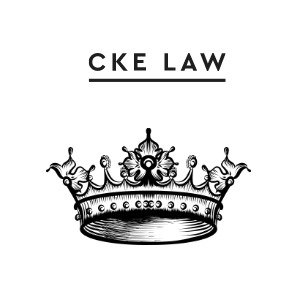Best Child Custody Lawyers in Manchester
Share your needs with us, get contacted by law firms.
Free. Takes 2 min.
Free Guide to Hiring a Family Lawyer
List of the best lawyers in Manchester, United Kingdom
United Kingdom Child Custody Legal Questions answered by Lawyers
Browse our 1 legal question about Child Custody in United Kingdom and read the lawyer answers, or ask your own questions for free.
- Divorce/chid custody and responsibility
- A judgement is passed that the mother has custody of a child while the father has visitation rights and is responsible for the child welfare, maintenance, education etc. but the father is only responsible for the child's education leaving other responsibilities for the mother, is it possible for the mother... Read more →
-
Lawyer answer by CIMA LEGAL CORPORATION
En temas del derecho de menores, no es posible que, de forma unilateral, la madre pueda decidir sacar al niño del país sin consentimiento del padre. Dependiendo de la legislación del país donde se encuentre, existen varios requisitos para hacerlo....
Read full answer
About Child Custody Law in Manchester, United Kingdom:
Child custody law in Manchester, as in the rest of the UK, is primarily governed by the Children Act 1989, which recognises that the welfare of the child should be paramount in all decisions concerning their upbringing. Courts, therefore, determine child custody, or 'child arrangements' as it is now called, by evaluating what is best for the child. Decisions about where the child will live, how often they'll see each parent, and how parental responsibilities will be shared are made with the child's welfare in mind. Parents are encouraged to reach an agreement outside court; however, in case of disagreements, the court steps in to decide.
Why You May Need a Lawyer:
There are several scenarios where you might need a lawyer for Child Custody issues. If there is a disagreement between the parents on living arrangements, visitation, or significant facet of the child's upbringing, legal assistance can help to negotiate or litigate a solution. In cases involving allegations of domestic violence, a lawyer's guidance is essential. Lawyers are also of great assistance in complex situations like international relocation, the application or enforcement of child arrangements orders, or when dealing with children with unique needs.
Local Laws Overview:
Manchester follows the UK-wide laws concerning child custody. Here, the law does not favour any parent; instead, it places the best interests of the child above all things. It is also recognized that maintaining a close relationship with both parents is generally most beneficial for the child. The court considers various factors including child's wishes, their physical, emotional and educational needs, effect of any change on them, their age, sex, background etc. When an agreement cannot be made between parents, created plans can be made legally binding by obtaining a consent order from court.
Frequently Asked Questions:
1. Do mothers have more rights than fathers in child custody disputes?
No, both parents have equal rights to their child. Custodian decisions are always based on the welfare of the child, not the parent's gender.
2. Can a parent move a child away from Manchester without the other parent's consent?
No parent can move a child away without the other parent's consent or court permission as it would be seen as child abduction.
3. How does the court determine what is in a child's best interests?
The court factors in the child's physical, emotional and educational needs, the effect of any changes on the child and the potential harm or risk of harm to the child, among other things.
4. Can grandparents apply for custody of a grandchild?
While grandparents don't have an automatic right, they can apply for a court order to gain access or custody of a grandchild, if it is in the child's best interests.
5. Can child custody orders be modified?
Yes, child custody orders can be modified through the court if there is a significant change in circumstances and it is in the best interests of the child.
Additional Resources:
For further resources, the Citizen's Advice Bureau provides comprehensive information and support on child custody matters. The Manchester City Council website also provides a wealth of information and links to further resources on this topic. Organisations like National Family Mediation and The Family Rights Group can also be helpful.
Next Steps:
If you need legal assistance in Child Custody, it is suggested to contact a family lawyer who specialises in Child Custody and access issues. They can provide advice tailored to your personal situation, guide you through the process, and represent you in court if necessary. You may also opt for family mediation, which can help you reach an amicable agreement with the other parent.
Lawzana helps you find the best lawyers and law firms in Manchester through a curated and pre-screened list of qualified legal professionals. Our platform offers rankings and detailed profiles of attorneys and law firms, allowing you to compare based on practice areas, including Child Custody, experience, and client feedback.
Each profile includes a description of the firm's areas of practice, client reviews, team members and partners, year of establishment, spoken languages, office locations, contact information, social media presence, and any published articles or resources. Most firms on our platform speak English and are experienced in both local and international legal matters.
Get a quote from top-rated law firms in Manchester, United Kingdom — quickly, securely, and without unnecessary hassle.
Disclaimer:
The information provided on this page is for general informational purposes only and does not constitute legal advice. While we strive to ensure the accuracy and relevance of the content, legal information may change over time, and interpretations of the law can vary. You should always consult with a qualified legal professional for advice specific to your situation.
We disclaim all liability for actions taken or not taken based on the content of this page. If you believe any information is incorrect or outdated, please contact us, and we will review and update it where appropriate.















